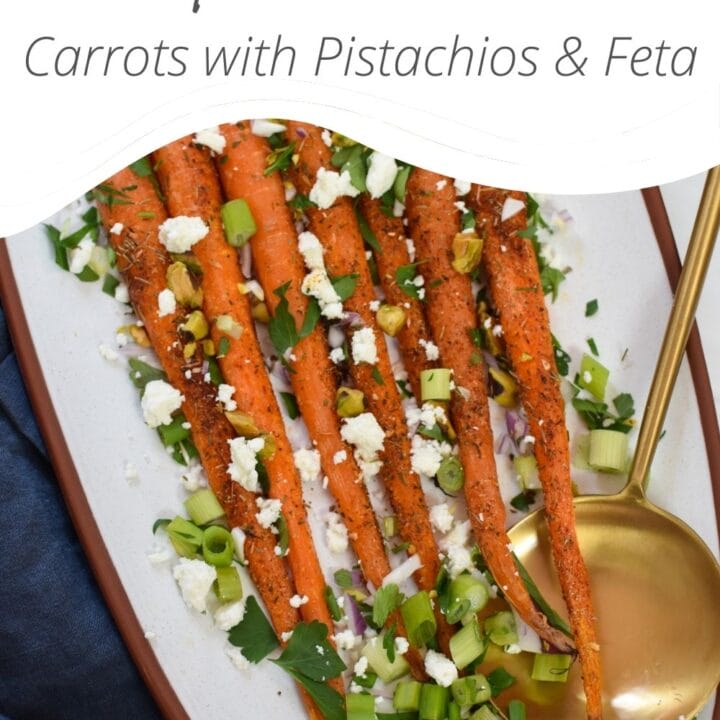International Carrot Day (April 3)
Check out the weird holiday International Carrot Day on April 3. Learn the history of carrots & their holiday & get ideas on how to celebrate.

One weird holiday on April 3 is International Carrot Day. Check out the other weird April holidays!
In the world of vegetables, the humble carrot stands as a vibrant and versatile icon. With its earthy sweetness and vibrant orange hue, it’s a favorite in gardens, kitchens, and on dining tables across the globe.
International Carrot Day, celebrated on April 4th each year, is a day dedicated to honoring this remarkable root vegetable. This article explores the origins of International Carrot Day, delves into the history of the carrot, discusses its culinary and nutritional significance, and offers creative ways to celebrate this beloved vegetable.

The Origins of International Carrot Day
The origins of International Carrot Day can be traced back to Sweden. It was founded by a Swedish man named Gunnar Erikson in 2003. Erikson, who had a passion for carrots, wanted to create a day that celebrated this vegetable in all its forms. He chose April 4th as the date for this holiday, likely because it’s the day when the Swedes traditionally plant their carrot seeds.
International Carrot Day might seem like an unusual holiday, but its origins are a testament to the power of one person’s passion for a seemingly ordinary vegetable. Gunnar Erikson, a Swedish man with a deep love for carrots, is the visionary behind this delightful celebration.
The Visionary: Gunnar Erikson Gunnar Erikson, a native of Sweden, had a fascination with carrots that extended far beyond the average vegetable enthusiast’s interest. His dedication to this humble root was nothing short of extraordinary. Gunnar Erikson saw carrots not just as a nutritious and versatile vegetable but as an emblem of health and vitality.
The Inception of International Carrot Day In 2003, Gunnar Erikson decided to share his enthusiasm for carrots with the world. He believed that carrots deserved their own day of recognition, a day when people could come together to celebrate the beauty and benefits of this vibrant vegetable. Thus, International Carrot Day was born.

Why April 4th? Choosing a date for International Carrot Day was a decision with thought and purpose. Gunnar Erikson settled on April 4th because it is a date of significance in the world of carrots. In Sweden, April 4th traditionally marks the beginning of the carrot planting season. The soil is just right for sowing carrot seeds, and the conditions are ideal for their growth.
Expanding Beyond Borders Initially, International Carrot Day was celebrated in Gunnar Erikson’s home country of Sweden. However, his passion was contagious, and the celebration quickly gained popularity beyond Sweden’s borders. Carrot enthusiasts, gardeners, chefs, and nutrition advocates worldwide embraced the idea, making International Carrot Day a global phenomenon.

A Day for All Things Carrot International Carrot Day is a day to appreciate and celebrate all things carrot-related. Whether it’s the sweet and crunchy freshness of a raw carrot, the comforting warmth of a bowl of carrot soup, or the delightful indulgence of carrot cake, this holiday encourages people to explore the diverse world of carrots.
Promoting Health and Nutrition Gunnar Erikson’s vision for International Carrot Day goes beyond culinary delights. He saw it as an opportunity to promote health and nutrition. Carrots are renowned for their high levels of beta-carotene, a precursor to vitamin A, making them a nutritious addition to any diet. International Carrot Day serves as a reminder of the health benefits associated with this vibrant vegetable.

Carrot Festivities Worldwide In countries around the world, International Carrot Day has inspired a wide range of activities and events. Schools may incorporate carrot-themed lessons into their curriculum, restaurants offer special carrot-based dishes, and communities come together for carrot-themed festivals.
A Tribute to Passion and Dedication International Carrot Day is a beautiful example of how one person’s passion and dedication can lead to the creation of a holiday that brings joy and appreciation to people worldwide. It’s a day to celebrate not just the vegetable itself but also the spirit of those who dedicate themselves to celebrating the simple joys of life, one carrot at a time.
In commemorating International Carrot Day, we not only pay tribute to the carrot as a versatile and nutritious vegetable but also honor the vision and enthusiasm of Gunnar Erikson, who turned his love for carrots into a global celebration. So, as you munch on a carrot stick or savor a carrot-infused dish on April 4th, remember the man whose passion for this root vegetable created a day to revel in all its glory.

The History of the Carrot
The history of carrots is a fascinating tale of human ingenuity and agricultural innovation. From their humble beginnings as a wild, unassuming plant to the vibrant orange roots we recognize today as a result of selective breeding, carrots have traveled through time and across continents, leaving an indelible mark on our culinary traditions and nutrition.
- Ancient Roots: The wild carrot, known as Daucus carota, is believed to have originated in Afghanistan and Iran. It was a slender, white or purple root with a bitter taste and a strong aroma.
- Domestication: Carrots were cultivated for medicinal purposes in ancient times. The ancient Greeks and Romans used them for their supposed aphrodisiac qualities and medicinal properties.
- Shift to Orange: The shift from purple and white carrots to orange ones occurred in the Netherlands during the 17th century. Dutch growers developed orange carrots in honor of the Dutch Royal Family, the House of Orange-Nassau.
- Carrots Worldwide: Orange carrots soon spread across Europe and eventually reached North America through European colonization. Different varieties of carrots were developed over time, leading to the diverse selection we have today.
- Nutritional Value: Carrots are celebrated for their high nutritional value, primarily due to their beta-carotene content. Beta-carotene is a precursor to vitamin A, making carrots an excellent source of this essential nutrient.

Wild Beginnings: The story of the carrot begins in the regions of modern-day Afghanistan and Iran. Wild carrots, known as Daucus carota, were a far cry from the plump, sweet carrots we now enjoy. They were thin, wiry, and often featured a purple or white color. These early carrots were primarily appreciated for their seeds and aromatic leaves, which were used for medicinal and culinary purposes.
Ancient Medicinal Uses: Carrots were cultivated over 2,000 years ago, primarily for their medicinal properties. Ancient Greeks and Romans believed in the carrot’s aphrodisiac qualities and used it as a remedy for various ailments, including digestive issues and menstrual problems.
Purple and White Carrots: The earliest cultivated carrots were often purple or white. The orange carrot we are familiar with today did not exist. Instead, carrots came in a variety of colors, including red, yellow, and black. Each color represented a different set of phytonutrients and flavors.
The Dutch Connection: The shift from purple and white carrots to orange ones took place in the Netherlands during the 17th century. Dutch growers, inspired by their national colors and in honor of the Dutch Royal Family, the House of Orange-Nassau, selectively bred carrots to produce a vibrant orange hue. This new variety was not only visually appealing but also had a sweeter, milder flavor.

Carrots Across Europe: Orange carrots quickly gained popularity and spread throughout Europe. European colonists brought orange carrots to North America, where they thrived in the continent’s diverse climates. Over time, different varieties of carrots were developed, resulting in the colorful assortment we enjoy today.
Beta-Carotene Discovery: In the early 19th century, scientists isolated and identified beta-carotene, the compound responsible for the vibrant orange color of carrots. This discovery played a crucial role in understanding the nutritional value of carrots and their contribution to human health.
Nutritional Renaissance: Carrots have undergone a nutritional renaissance in recent years, celebrated for their high levels of beta-carotene, an antioxidant that the body converts into vitamin A. Vitamin A is essential for maintaining healthy vision, skin, and a robust immune system.
Culinary Adaptation: As carrots became more accessible and versatile, they found their way into a wide range of culinary traditions. From roasted root vegetables to hearty stews, and from refreshing salads to delectable desserts (carrot cake, anyone?), carrots have become a kitchen staple worldwide.
Cultural Significance: Beyond their culinary applications, carrots hold cultural significance in various regions. For example, they are a symbol of good luck and prosperity in some Asian cultures. In others, they are associated with traditional medicine and natural healing.
Global Appeal: Today, carrots are grown and enjoyed across the globe, making them one of the most universally consumed vegetables. Whether eaten raw as a crunchy snack, cooked to sweet tenderness in a soup, or creatively incorporated into a variety of dishes, carrots continue to be a beloved and versatile part of our culinary landscape.

Culinary and Nutritional Significance
Carrots have earned their place in the culinary world and are valued for their versatility, nutritional content, and delightful taste. Here’s a closer look at their significance:
1. Culinary Versatility:
- Raw Snacking: Carrots are often enjoyed raw as a healthy and crunchy snack. They can be sliced into sticks or rounds and paired with dips like hummus or ranch dressing.
- Cooked Delights: Cooked carrots take on a sweeter flavor and a softer texture. They’re commonly used in soups, stews, and roasted vegetable medleys. Glazed carrots, simmered in butter and sugar, are a classic side dish.
- Ingredient in Dishes: Carrots play a crucial role in various dishes, from salads to stir-fries. They add color, flavor, and nutrition to a wide range of recipes.

2. Nutritional Powerhouse:
- Rich in Beta-Carotene: Carrots are renowned for their beta-carotene content, which supports eye health and overall immune function. Beta-carotene is a potent antioxidant that gives carrots their vibrant orange color.
- Vitamin A: The body converts beta-carotene into vitamin A, an essential nutrient for maintaining healthy skin, vision, and a strong immune system.
- Dietary Fiber: Carrots are a good source of dietary fiber, aiding in digestion and promoting a feeling of fullness.
- Low in Calories: Carrots are low in calories, making them an excellent option for those looking to maintain or lose weight.
- Vitamins and Minerals: In addition to vitamin A, carrots provide vitamins C, K, and B6, as well as minerals like potassium and biotin.

Creative Ways to Celebrate International Carrot Day
International Carrot Day offers a splendid opportunity to celebrate this versatile vegetable in various ways:
- Cooking Challenge: Host a carrot-themed cooking challenge among friends or family. Each participant can prepare a dish that highlights carrots as the star ingredient. Then, have a taste test to determine the winning creation.
- Garden Planting: If you have a green thumb, consider planting carrot seeds in your garden or in containers on your balcony. You can involve children in this activity, as growing carrots can be an exciting and educational experience.
- Carrot Art: Get creative with carrot-themed art projects. Carve, paint, or stamp with carrots to create unique artwork. You can also try vegetable printing, where you use carrot slices as stamps for fabric or paper.
- Carrot Recipes: Experiment with carrot recipes beyond the usual. Try making carrot soufflés, carrot and ginger soup, or carrot cake with cream cheese frosting. Share your creations with friends and family.
- Carrot Tasting Party: Host a carrot tasting party with an assortment of carrot varieties. Explore different colors and flavors, such as purple, yellow, and red carrots. Pair them with various dips and discuss the distinct taste profiles.
- Health and Wellness: Use the day as an opportunity to focus on health and wellness. Incorporate more carrots into your diet by blending them into smoothies, juicing them, or preparing a fresh carrot salad.
- Community Outreach: Consider organizing a community event that promotes healthy eating. Offer free carrot samples, share carrot recipes, and educate attendees about the nutritional benefits of carrots.
- Carrot Crafts: Engage in carrot-themed crafts with children. You can make carrot-shaped paper or felt crafts, create carrot-themed decorations for your home, or even design carrot-themed greeting cards.
- Carrot-Related Films: Enjoy family-friendly movies or documentaries related to carrots or gardening. It’s a great way to combine entertainment and education.
- Share the Harvest: If you have a surplus of homegrown carrots or produce from your garden, consider donating them to a local food bank or shelter to help those in need.

International Carrot Day invites us to celebrate the vibrant and versatile world of carrots. From their ancient origins to their role as a culinary and nutritional powerhouse, carrots have earned their place as a beloved and essential vegetable. Whether enjoyed fresh, cooked, or creatively incorporated into recipes, carrots offer a delicious and nutritious way to savor the flavors of the earth.
As we celebrate International Carrot Day, let us take a moment to appreciate the history, cultural significance, and culinary delights of this remarkable root vegetable. Whether you’re growing carrots in your garden, preparing a delicious carrot-based meal, or simply snacking on carrot sticks, you’re honoring a vegetable that has been cherished for centuries and continues to brighten our plates and our lives.
Ideas for International Carrot Day
Quick Pickled Carrots
An easy Quick Pickled Carrots recipe that's perfect for International Carrot Day to go with your Vietnamese Rolls, Banh Mi, or as a tangy side dish. Quick pickled, so there's no canning required. Sweet and tangy with that vinegary pickled flavor that everyone loves. Takes only minutes to prepare!
Japanese Carrot Ginger Dressing Recipe
This Japanese carrot ginger dressing recipe boasts bold flavors that make salad exciting. It's every bit as delicious as what you’d get at a hibachi restaurant – made in just 10 minutes!
Vegan Carrot Hot Dogs
Change up your grilling routine for International Carrot Day with these Vegan Carrot Hot Dogs. They are so easy to make - just steam, marinate & grill them up to perfection!
Honey Glazed Carrots Recipe - Foxes Love Lemons
Make your vegetable side dish swoon-worthy for International Carrot Day with these tender, sweet and delicious Garlic Honey Roasted Carrots. Just a few simple ingredients!
Cashew Carrot Bites with Honey Cream
Cashew Carrot Bites with Honey Cream. Easy-to-make and ingenious dessert, moist, flavorful and yummy. Much lighter than a carrot cake for International Carrot Day!
Gluten Free Carrot-Pecan Muffins
These bad boys are made with a combination of whole grains and almond meal and naturally sweetened with only dates, banana and shredded carrots. A healthy dessert for International Carrot Day! Although they're not cakey like store bought muffins, they're hearty and dense - a stick to your rib type of muffin.
The Best Easy Homemade Carrot Cake With Pineapples
This perfectly spiced and deliciously moist Homemade Carrot Cake is just the dessert needed for International Carrot Day! Tasty layers are generously slathered in a sweet, tangy cream cheese frosting to make the BEST carrot cake recipe around!
Carrot Cake Bites
Moist, chewy and over flowing with carrot cake flavors Carrot Cake Bites. These bites are no bake and require only 15 minutes of prep time. Congrats, you just found a healthy way to eat your Carrot Cake on International Carrot Day!
Carrot Cake Cream Cheese Bars
Put a spin on your International Carrot Day celebrations with carrot cake cream cheese bars – a delightful dessert that combines the rich and tangy flavor of cream cheese with the sweetness of carrot cake.
Carrot Cake Ice Cream
Carrot Cake Ice Cream! Everyone loves carrot cake and everyone loves ice cream, so let's combine them for International Carrot Day! Everyone will love this luscious cream cheese ice cream layered with chunks of edible carrot cake batter.
Carrot Cake Porridge Recipe
Delicious Cake cake porridge for a comforting and wholesome start to International Carrot Day.
Carrot Cookies with Orange Icing
Carrot cookies with orange icing, spiced with cinnamon and allspice, and topped with a tangy-sweet icing and walnuts. A delicious treat for International Carrot Day!
Maple Glazed Stovetop Carrots
Learn how to cook carrots on the stove for International Carrot Day with these sweet and simple glazed carrots! They're sauteed in a mixture of brown sugar and maple syrup to create a sweet and delicious coating.
The Best Simple Carrot Cake Recipe
This is the BEST Simple Carrot Cake Recipe! Moist, tender carrot cake is topped with a rich, fluffy cream cheese frosting and studded with roasted walnuts. It’s made from simple ingredients and is the perfect dessert for special occasions like International Carrot Day.
Carrot Cake Cookies with Cream Cheese Drizzle
Chock full of carrots, walnuts, raisins, cardamom, cinnamon, and candied pineapple, these Carrot Cake Cookies with Cream Cheese Drizzle are so incredibly flavorful ~ and begging to be enjoyed on International Carrot Day with a tall, cold, glass of milk!
Carrot Cake Pancakes
Carrot cake pancakes are the perfect easy International Carrot Day breakfast or brunch. All the fabulous flavor of carrot cake in sweet carrot and spice pancakes.
Brazilian Carrot Cake Recipe (Kitchen Blender)
Brazilian Carrot Cake quickly prepared in the kitchen blender and topped with a silky and decadent chocolate sauce. This is a kid-friendly cake for International Carrot Day that also comes with useful tips for a moist cake. It’s simple, less sweet than the old fashioned carrot cake, and super delish.
Cinnamon Carrot Pie – Carrot Recipes – The Gifted Gabber
This cinnamon carrot pie is similar to a pumpkin pie or a sweet potato pie. It is a perfect dessert for International Carrot Day, or fall gatherings like Thanksgiving! It is a perfect condensed milk pie!
Carrot Stir Fry with Green Onions
Carrot Stir Fry with Green Onions: A simple side dish that complements heartier stir fries to help create a balanced and filling meal. Sweet and savory stir-fried carrots are sure to please on International Carrot Day!
Carrot Star Bites
Carrot Star Bites are made with only 4 ingredients and are a great toddler snack or lunchbox filler for International Carrot Day.
Roasted Carrots w. Peanut Curry Sauce
If you love roasted carrots, then you'll love this recipe for International Carrot Day. Inspired by a dish served at a London eatery, these roasted carrots take on a whole new flavor profile with a curry peanut sauce that will have everyone reaching for seconds!
Carrot ice cream
This carrot ice cream for International Carrot Day is surprisingly delicious and the most amazing natural orange color. A couple of scoops practically counts as one of your five a day!
Crockpot Carrots: BBQ Lil Smokies
These Crockpot Carrots are simmered in tangy bbq sauce and are mouthwateringly delicious. They are perfect for International Carrot Day, holidays, game days, birthday parties, and even family dinners. Be forewarned, they’re super addictive!
Carrot Raisin Salad Recipe: How To Make it At Home
Make a super simple side dish on International Carrot Day from this creamy and crunchy Carrot Raisin Salad! It’s slightly sweet, but sugar/honey can be omitted and replaced with a grated apple if preferred.
Roasted Carrot Platter with Yogurt and Sumac
Fresh lemon and herbs mingle with roasted carrots enhanced with warm Silk Road spices and tangy yogurt for a light meal on International Carrot Day or super swank side!
Maple Bourbon Glazed Carrots
Looking for an easy side dish for International Carrot Day that's loaded with tons of flavor? Maple Bourbon Glazed Carrots are made with maple syrup, ground ginger, fresh chives and a sweet bourbon glaze. Plus, they're ready in 30 minutes or less!
Carrot Souffle
Light and fluffy with sweetness from carrots and brown sugar offset by buttermilk. This souffle is sure to steal the show on International Carrot Day.
Steamed Carrot Pudding with Vanilla Sauce
Steamed carrot pudding with vanilla sauce tastes like super moist carrot cake. This steamed pudding is topped with a creamy vanilla sauce for a super tasty International Carrot Day dessert!
Air Fryer Carrots with Parmesan and Dill
These Air Fryer Carrots are deliciously caramelized and rubbed with a parmesan-dill rub for a bold and sweet flavor that makes the perfect easy side dish for International Carrot Day.
Roasted Carrots With Carrot Tops Gremolata
Roasted Carrots With Carrot Tops Gremolata, an easy roasted carrots recipe for International Carrot Day. Carrots are oven roasted to buttery perfection and topped with a mixture of fresh carrot top greens, dill, lemon, garlic and olive oil.
Carrot Citrus Salad
This chopped carrot citrus salad has roasted rainbow carrots, blood oranges and Meyer lemons tossed in a citrus mustard vinaigrette to showcase the best of produce for International Carrot Day,
Roasted Carrots with Pistachios
Roasted Carrots with Pistachios is the perfect International Carrot Day side dish or addition to your Easter meal. Roasted carrots are sweet and complimented nicely with fresh herbs, red onion, creamy, tangy feta cheese and crunchy pistachios. You will love this light and fresh side!
Pumpkin Carrot Soup
Pumpkin carrot soup is a savory vegan soup that's both hearty and comforting. Filled with warming spices like ginger, cumin, and turmeric, this pureed soup is just what you need on International Carrot Day.
Honey Roasted Carrots and Parsnips
Indulge in the sweet and savory goodness of Honey Roasted Carrots and Parsnips Recipe for International Carrot Day. These tender root vegetables are oven baked to perfection with a delicious honey glaze that will tantalize your taste buds. Perfect as an easy side dish for a weeknight dinner and they’d made the perfect addition to a holiday dinner.
Vegan Roasted Carrot Soup with Lentils
Easy and delicious Vegan Roasted Carrot Soup with lentils and Moroccan spices. This velvety, rich and healthy carrot soup has a unique and perfectly balanced flavor perfect for International Carrot Day!
Best Gajar Ka Halwa - Carrot Pudding
Carrot pudding is a delightful dessert pudding made out of grated carrots for a confection that has the warming flavors of carrot cake. For International Carrot Day, make it on the instant pot!
Tropical Carrot Smoothie Recipe
Made with 100% carrot juice, oat milk, fresh ginger, banana, pineapple, and mango, this 5-minute Tropical Carrot Smoothie Recipe is a delicious treat the whole family will love on International Carrot Day! Vegan, gluten-free, and dairy-free.
Real Food 'Copper Penny Carrots' Salad
This is an old, much loved recipe for Copper Penny Carrots Salad that has been re-created for International Carrot Day so that it contains no questionable ingredients. It's just as delicious as before, if not more so!
Honey Roasted Carrots with Goat Cheese and Pepitas
Honey Roasted Carrots with Goat Cheese and Pepitas... sweet and savory and so delicious for International Carrot Day! The natural sweetness from the carrots and honey caramelize perfectly while roasting. They're finished off with creamy goat cheese and toasted pepitas, creating an amazingly flavorful side dish.
Carrot Casserole
If you love carrots and you love cheese you must try this cheesy Carrot Casserole for International Carrot Day. A perfect vegetable side dish to any meal! Kid friendly and a great way to use up fresh garden carrots!
Caramelized Carrot Pasta Sauce
This is no ordinary carrot pasta sauce. Carrots and other root vegetables are caramelized to perfection and then combined with tangy mustard, zesty lemon juice, and creamy sour cream. The natural sweetness of the veggies and the savory herbs make this carrot sauce both filling and flavorful, a perfect addition to your International Carrot Day dinner table.
Fresh Carrot Apple Ginger Juice Recipe >U MasalaHerb.com
Refreshing, healthy and delicious breakfast elixir for International Carrot Day. The carrot apple ginger juice will be your soon to be a new friend.
Glazed Carrots with Pineapple Recipe
Have you ever heard of pineapple carrots? Y’all are gonna love it. It's perfect side dish on International Carrot Day or for some ham!
Parmesan Roasted Rainbow Carrots
You're going to fall head-over-heels on International Carrot Day for this parmesan roasted rainbow carrots recipe! These tasty multi colored carrots are roasted with parmesan and garlic for the perfect blend of sweet and savory flavors! Enjoy with Traeger smoked beef ribs or your favorite entree.
Fermented Carrots with Jalapeno and Thyme
Brine pickles, like these fermented carrots, are among the easiest fermented vegetables for beginners to make. Give them a try on International Carrot Day!
Curry Spiced Roasted Carrots
Curry Spiced Roasted Carrots are the perfect way to add some spice to your life on International Carrot Day! Fresh carrots perfectly seasoned with warm spices like curry powder, turmeric, and garlic make a super flavorful vegetable that is the perfect side dish for fall!
Carrot Sambharo | Gujarati Carrot Salad
Carrot sambharo is a Gujarati carrot salad. A sambharo is a type of lightly stir-fried salad. This sambharo sticks to the traditional flavors of a sambharo, with a vaghar of mustard seed and curry leaf. It is a great addition to any thali and works well as a side dish for International Carrot Day, even with foods outside of Indian cuisine.
Carrot Macaroni and Cheese
Make this batch of Carrot Macaroni and Cheese for International Carrot Day. Perfect for the picky eater who doesn’t like to eat their veggies! Loaded with cheddar they will never know carrots are in the sauce!
Rainbow Carrot Salad with Quinoa
This gorgeous rainbow carrot salad with quinoa and feta is a warm salad that makes for a great vegetarian main course or delicious side salad for International Carrot Day.
Roasted Carrot Pasta Sauce
If you love the flavor of roasted carrots, this roasted carrot pasta sauce is sure to be your new favorite for International Carrot Day! It’s incredibly flavorful, thanks to the roasted carrots, parmesan cheese, and tomato paste. With its creamy texture, it’s also the perfect alternative to tomato-based sauces and a great way to incorporate an extra serving of vegetables into your kid’s diet!
Carrot Kheer | Carrot Payasam
Carrot kheer is the perfect dessert to celebrate International Carrot Day. This carrot payasam is made with fresh carrots and milk and flavored with saffron and cardamom.
Carrot Top Salad Dressing
This delicious carrot top dressing is an easy way to use carrot tops or carrot greens for International Carrot Day, which are full of nutrients and shouldn’t be discarded.
Cezerye | Turkish Carrot and Walnut Bars
Cezerye is a very popular Turkish dessert from the city of Mersin, and this Carrot and Walnut Bar is the most famous local delicacy. Make it on International Carrot Day; it's made from grated carrots and walnuts and dusted with fine coconut.
Mashed Carrot Potatoes With Bacon Recipe
Have some mashed carrot potatoes for International Carrot Day!
Healthy Carrot Salad
This Healthy Carrot Salad has shredded raw carrots, caramelized onions, and refreshing cilantro tossed with pungent spices and apple cider vinegar makes a great addition to any meal on International Carrot Day.
Carrot Puff AKA Carrot Souffle -That Skinny Chick Can Bake
Carrot Puff may become your new favorite International Carrot Day side dish recipe! The souffle-like side dish that will capture your heart!
Easy Carrot Curry Recipe
This Easy Carrot Curry is perfect for the whole family for International Carrot Day! Creamy, flavorful, coconut based Sri Lankan curry, that is simple to make, and very comforting.
Maple Ginger Glazed Carrots
Simple to make for International Carrot Day, rainbow carrots are cooked in a maple syrup and fresh ginger glaze fo a vegetable side dish that will stand out from the crowd.
Moroccan Carrot Salad With Lemon Dressing
A fresh and crunchy salad of matchstick carrots, toasted almonds, and sweet currants tossed with a sweet/tart lemon and olive oil based dressing. Goes perfectly with feta cheese on International Carrot Day for lunch!
Air Fryer Carrot Bacon
Air Fryer Carrot Bacon is a tasty, vegan alternative to meaty bacon on International Carrot Day. Easy to make, this carrot bacon is a good way to use up fresh carrots and also makes a great side dish.
Dill Pickled Carrots
Perfect International Carrot Day recipe: quick and easy dill pickled carrots recipe with tender-crisp carrot texture, strong garlic and dill flavors, mouth-watering vinegar, and optional spice. This dilled carrots canning recipe can be made in a water bath canner!
Five Minute Carrot Top Pesto
Carrot Top Pesto is a simple, healthy, and tasty way to add flavour to meals. It is quick to make and is a great way to reduce food waste in the kitchen on International Carrot Day.
Pin it!
Share this post about International Carrot Day on Pinterest!































































